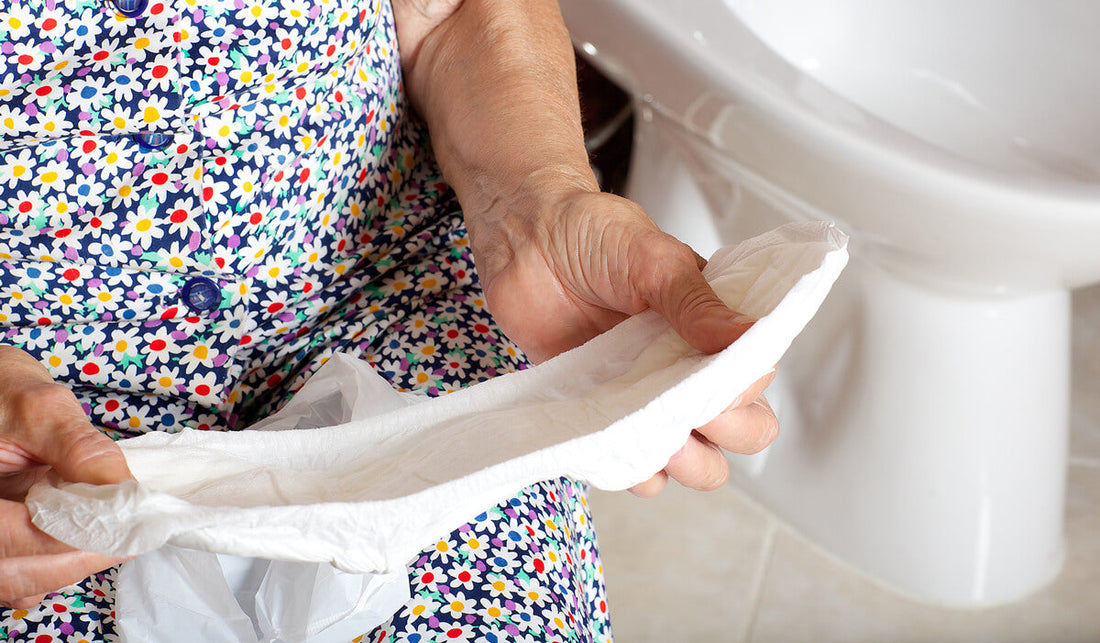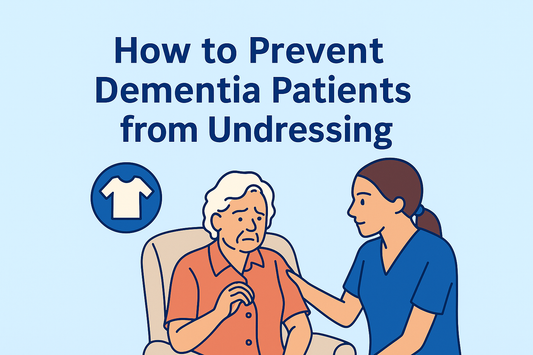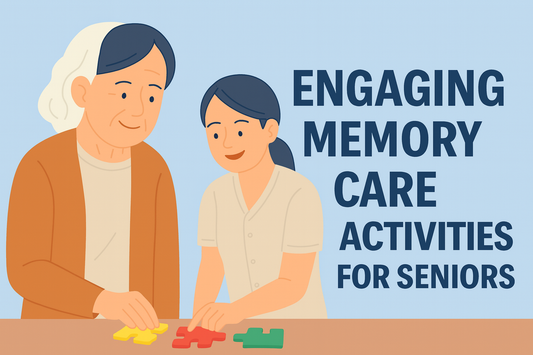
Problems Using the Toilet
Is your loved one having trouble using the toilet? Are you wondering why that’s the case? As a person ages, there are a number of reasons that could cause them to develop problems with using the toilet. And if that person develops dementia, it becomes inevitable.
QUICK LINKS - TOPICS COVERED:
- WHAT CAUSES THE PROBLEMS?
- HOW TO ADDRESS THE PROBLEM?
- HOW TO MANAGE THE PROBLEM?
- USING INCONTINENCE MANAGEMENT PRODUCTS
What Causes the Problems?
The exact reason why your loved one is having problems in using the toilet will vary from person to person. Among the elderly, and especially those with dementia, one or more of the following could be the reason:
- Not reacting quickly enough to the sensation of needing to use the toilet
- Not getting to the toilet in time—due to limited mobility, for example
- Not being able to tell the caregiver that they need to go to the toilet due to difficulty in communication
- Not understanding a prompt from someone to use the toilet
- Not being able to find, recognize, or use the toilet—if someone becomes confused about their surroundings, they may end up urinating or releasing a bowel movement in an inappropriate place because they mistake it for a toilet
- Not being able to, or forgetting how to, do things needed to use the toilet such as undoing clothing, not letting others help, or simply refusing to use the toilet—this could be due to embarrassment or not understanding an offer for help.
- Not making any not making any attempt to find the toilet—this could be due to depression, a lack of motivation, or because the person is distracted
- Embarrassment after an accident, which the person unsuccessfully tries to manage. For example, they may try to hide wet or soiled clothes at the back of a drawer to deal with later, and then forget they’ve put them there.
Some other common causes of incontinence, which leads to trouble using the toilet are as follows.
- Urinary Tract Infections (UTIs)
- Pregnancy and Childbirth
- Menopause
- Smoking
- Obesity
- Medical Conditions (diabetes, multiple sclerosis, Parkinson’s, dementia, etc.)
- Medications
- Hysterectomy
Some of these causes can be cured with appropriate diagnosis.
How To Address the Problem?
Speak to a Doctor
When your loved one is struggling with using the toilet, it is important to start out by consulting with a doctor. It can help to determine the cause, severity, and the appropriate course of action required to manage it. The first visit should be with your loved one’s primary doctor, after which a visit to a urologist may be recommended.
During the consultation, it is important to provide the doctor with as much information as possible regarding your loved one’s problems in order for them to be able to diagnose the issue correctly. Be sure to note down things such as:
- Number of times per day the person is incontinent
- Are they experiencing urinary incontinence or bowel incontinence or both?
- When did the problem start?
- Are the person’s clothes saturated or is the person just producing a trickle?
- Has there been any increase in confusion or any change in behavior?
- Does the person have fever or pain when going to the toilet?
- List of the patient’s current medication
Speak To Your Loved One
In addition to consulting a doctor, you should also address the matter with your loved one. The whole experience is likely to be stressful and embarrassing for them. If they have dementia, then the process can be even more daunting. Below are some important things to keep in mind when having a conversation with them:
- Use short words or sentences to express yourself and make it easier to follow step-by-step
- Use familiar and non-serious words. However, use adult language, not baby talk
- Be alert to non-verbal signs
- Don’t rush
- Be emotionally supportive
- Stay calm
- Reassure your loved one to reduce feelings of embarrassment
- Respect your loved one’s need for privacy
How To Manage the Problem?
Managing incontinence and the resulting problems with using the toilet can vary in difficulty depending on the person. If they have dementia, there can be a few extra challenges that appear as their condition deteriorates. Some tips to manage and possibly limit your loved one’s problems with using the toilet are as follows:
Maintain Bladder Health
A number of things that can be done in order to maintain bladder health are:
- Avoid carbonated or caffeinated beverages – they contain diuretics which can increase the frequency of urination, thereby increase the risk of incontinence.
- Identify and possibly limit certain medications that could lead to incontinence (sleeping pills, anti-anxiety drugs)
- Limit liquids before bed – to ensure that the likelihood of accidents occurring over the night is reduced.
- BUT don’t limit liquids during the day – adequate fluid intake during the day keeps the bladder and bowel healthy.
- Avoid acidic or spicy food – they can irritate the urinary tract.
- Eat foods containing fiber – helps to avoid constipation.
- Exercise regularly – maintaining good physical health can also keep the bladder muscles strong.
Reduce Accidents During the Night
- Limit the consumption of liquids at least a couple of hours before bed time.
- Schedule night time toilet trips
Be Respectful
- Never let your loved one feel embarrassed or like they’re being talked down on
- In case accidents happen, be careful to not hurt your loved one’s feelings
- Cleanup accidents without exchanging negative words
Encourage Use of Toilet
If your loved one is in the middle to late stages of dementia as they are likely to forget about going to the toilet or may not realize it until it’s too late. Gently remind them to go to the bathroom at regular intervals.
Make it Easy to Find the Toilet
For dementia patients, sometimes their own home may seem like a strange new place at times. Finding the toilet may become challenging. To help them find the toilet with ease, you can consider some of the following:
- Clear the path to the bathroom
- Keep the bathroom door open
- Use signs & markers on the floor and doors
- Use lights to guide them to the bathroom
- Remove any door locks
- Use contrasting color in the bathroom
Establish Toileting Schedule
In addition to scheduling night time toilet trips, it can be helpful to do so during the day as well. Try to keep track of your loved one’s toilet use throughout the day and identify any patterns that may emerge. Based on those patterns, try to plan ahead and establish a toileting schedule.
Toilet Friendly Clothing
It is best to adapt your loved one’s clothing to the new situation. Choose clothes that are easy to wash, has zippers or Velcro closures, and shoes without laces. Any item of clothing they wear should be easy to get in and out of.
Using Incontinence Management Products
There are many different products out there today that can help both your loved one and their caregiver to successfully manage toileting problems. These most suitable product for a person can vary depending on the severity of incontinence.
One of the most commonly available products out there that can help people with problems using the toilet are adult diapers. Unlike the common term used to describe it, they aren’t just diapers enlarged to fit adults. They can come in a variety of sizes, absorbencies, styles, and even colors. Examples include:
- Adult diapers
- Absorbent pads
- Incontinence panties and briefs
- Disposable underwear
- Plastic pants
- Portable toilet
- Washable bed pads
- Seat protector
If bed pads are meant to be used on your loved one’s bed during nighttime, then seat protectors are meant to be used during the day on any chair or surface that your loved one may sit at.



